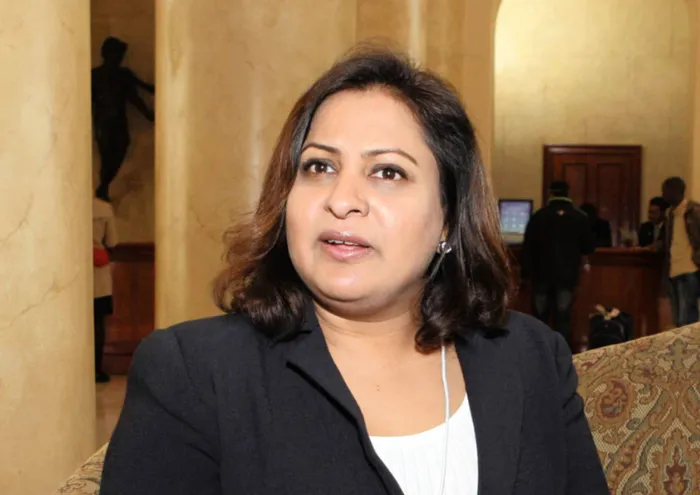‘South Africa is Japan of Africa’ – Khan

030615 Standard and Chartered Chief Africa economist Razia Khan had an interview with Business Reort at the World economic Forum(WEF) in Cape Town.Photo:Simphiwe Mbokazi 030615 Standard and Chartered Chief Africa economist Razia Khan had an interview with Business Reort at the World economic Forum(WEF) in Cape Town.Photo:Simphiwe Mbokazi
Justin Brown
“SOUTH Africa is the Japan of Africa.”
That was what Standard Chartered Bank chief economist for Africa Razia Khan heard at a breakfast briefing yesterday morning in Cape Town.
“The comment that I heard from the session that I have just been in is that South Africa is the Japan of Africa. And I thought ‘oh dear, yes’, in more ways than you would know,” Khan added.
South Africa was on a slower growth trajectory off a large base. South Africa’s growth had been disappointing, Khan said during an interview on the sidelines of the World Economic Forum meeting on Africa.
South African economic growth has been lagging the rates of many African and emerging economies for years but this has become more noticeable since the 2008 financial crisis and the implosion of Eskom. At the same time, the size of South Africa’s economy has been surpassed by Nigeria with Nigeria becoming Africa’s biggest economy.
In the same way, Japan has had moribund growth since 1990 and has been surpassed by China as Asia’s largest economy.
“For too long there has been complacency that even 3 percent growth was acceptable,” Khan said.
“It has been increasingly difficult to move out of this slow growth,” she added.
“The very first thing that has to go is the sense of complacency,” Khan said.
“Two percent to 3 percent growth is no where good enough for an economy of a country with South Africa’s population and a country with South Africa’s social economic challenges” she added.
Save more
To boost growth, Khan said South Africa needed to increase its rate of savings. “South African savings are at a very low scale,” she added.
“South Africa needs to do more to mobilise savings,” Khan added.
“It’s time to reduce the level of excuses that are made. There needs to be honest conversation with stakeholders,” she added. The lack of savings were taking away from South Africa’s long-term growth potential, Khan said.
Countries that have been doing better than South Africa on the economic front had been doing so because of much higher rates of savings.
Taking proper policy decisions was vital for economic growth too, Khan said, referring to the debacle over visas and unabridged birth certificates that has resulted in a loss of tourism earnings.
“For someone who cares deeply about South Africa, it is time to be brutally honest. It is time to take a hard honest look at what needs to be done to,” Khan added.
“Has South Africa lost the ambition and drive of the (former finance minister Trevor) Manuel years?” Khan said.
Lower ratings
Under Manuel, South Africa had a world class financial position, however this was no longer the case, she added.
After the 2008, spending increased, even if the economic conditions were not favourable, she said.
“Did South Africa slip into more complacency for too long at the risk of its debt rating?” Kahn said.
Rating agency Fitch will announce its latest decision on South Africa’s credit rating tomorrow.
“Things have been allowed to slip for just too long,” Kahn said.